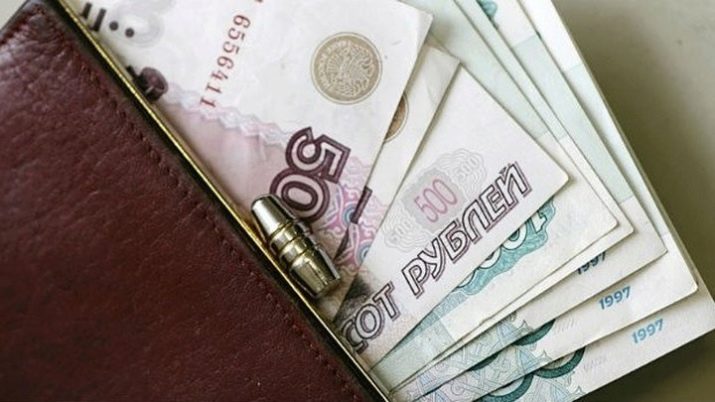All about the profession of a customs officer
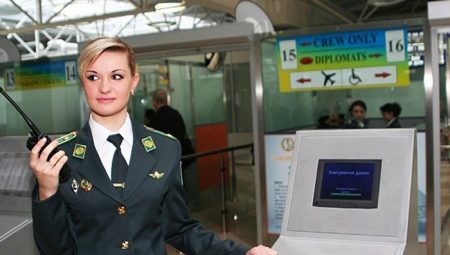
A customs officer is objectively a popular, but difficult profession, with a solid burden of responsibility and often with a large amount of routine paperwork.... Therefore, when choosing a profession, it is important to weigh the pros and cons, and most importantly, to understand whether you are suitable in your personal qualities for such a job.
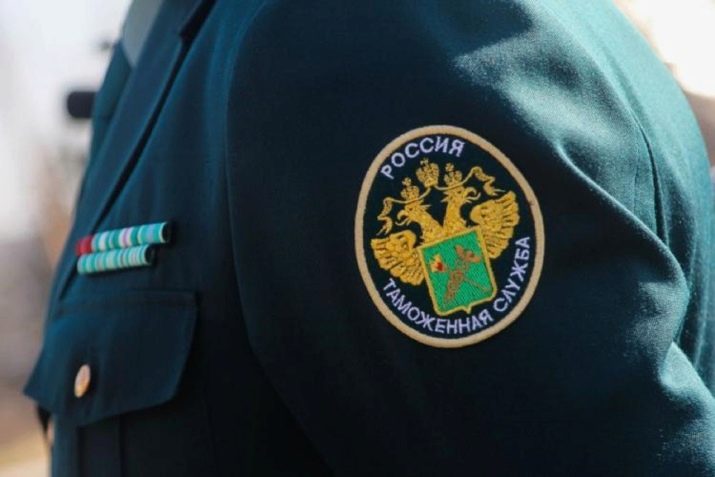
Peculiarities
Customs officer is a profession with an ancient history... In Russia, since the 9th century, this work was functionally performed by "mytniks" (from the word "myto" - duties, collection). The need for such specialists arose in connection with the formation of centralized states and the intensification of world trade.
Nowadays, a customs officer is a civil servant with duties of control over goods transported across borders, people passing by, fees and customs duties. The initial stage of the profession is the development of the position of an ordinary inspector (after receiving the appropriate education). This is followed by the posts of senior inspectors and commanding officers.
The basic duties of a customs officer include:
- Inspection of citizens and cargo at designated areas of railway stations and airports;
- preparation of proper documentation, receipt of fees and duties;
- detection of contraband, prohibited goods;
- keeping records of confiscated goods;
- conducting investigations of offenses within the legislative field of competence.
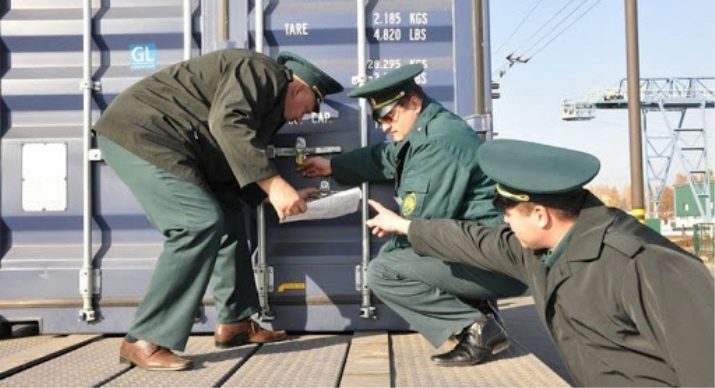
In addition to the main positions, there are also auxiliary ones - checkpoint employees, passport control workers, narrow-profile specialists and others.
The profession belongs to the category of complex, routine activities. Sometimes she's boring and sometimes she's dangerous.The level of responsibility of a customs officer is also high, since he is the guardian of the country's economic security. The duties and rights of customs officers are quite strict, since this is caused by the very essence of this profession.
Often, dog handlers work in this industry, specializing in finding items, drugs and other harmful substances prohibited for import into the country. The profession is quite suitable for a girl. Today, the customs industry employs about 35% of women from the entire staff of the apparatus.
Special factors in this work include a high degree of corruption among employees, which leads to increased demands on job candidates.
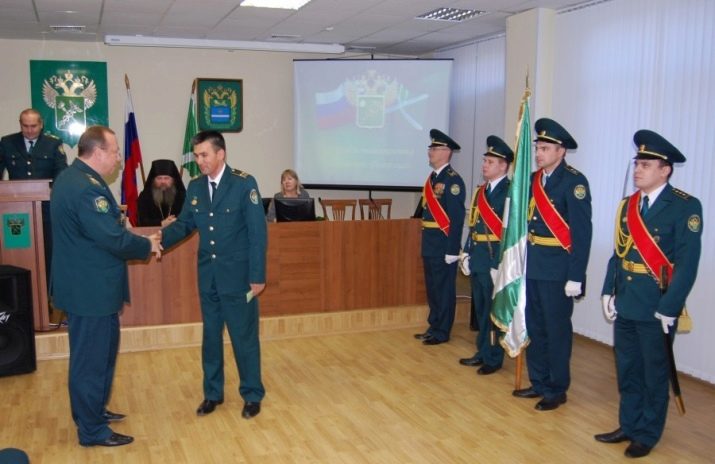
In general, they are allowed to work:
- adult citizens of the Russian Federation (dual citizenship is excluded);
- persons who have completed special training or have a legal education;
- men who have served in the army;
- capable and physically healthy people;
- persons without a criminal record.
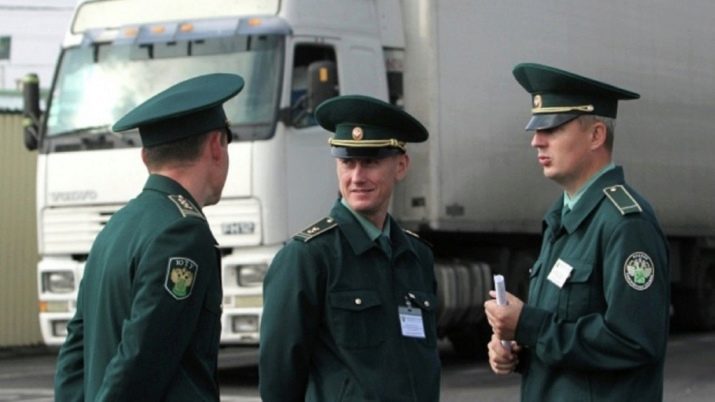
Advantages and disadvantages
The main advantages for ordinary employees:
- respectability and special mission of the profession;
- the presence of benefits like the military, various supplements to pensions and social benefits;
- civil service with the privileges provided for it;
- training is not particularly difficult, it is feasible for the humanities;
- the availability of opportunities for applying for a simple position and without higher education (in order to look around and assess the future);
- the practical absence of problems in finding employment among young specialists;
- employees who graduated from law schools or who are in the military are entitled to benefits;
- the optimal ratio of physical activity with intellectual work;
- constant indexing of salaries, free training is also provided;
- accrual of seniority under a special program that brings the retirement period closer;
- the presence of various benefits, however, a significant amount of which is allocated only to law enforcement officers;
- the opportunity to work as a consultant for private export / import companies;
- a fairly solid salary, but in high positions;
- a decent amount of pensions due to increments and accelerated accrual of seniority.
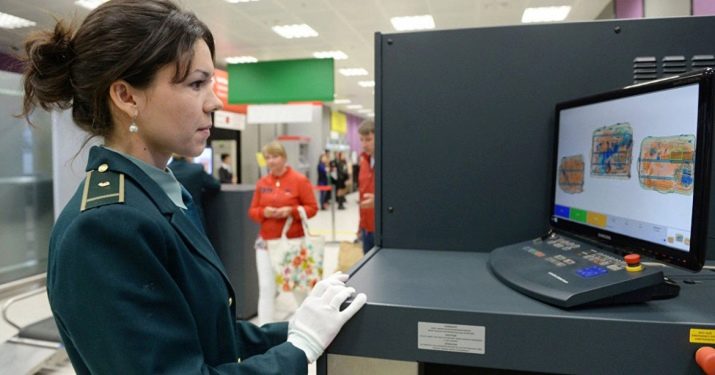
Disadvantages:
- low level of comfort;
- emotional stress and stress;
- corruption risks and moral problems of activity;
- low salary;
- routine paperwork;
- extremely high degree of responsibility;
- the presence of pressure from violators of the law.
By and large - this is an actual, difficult bureaucratic job. Beginners are often unable to withstand the pressure and intensity of such strenuous activity. However, the existing shortcomings compensate not only for career prospects, but also for the benefits, some privileges, and the prestige of the profession.
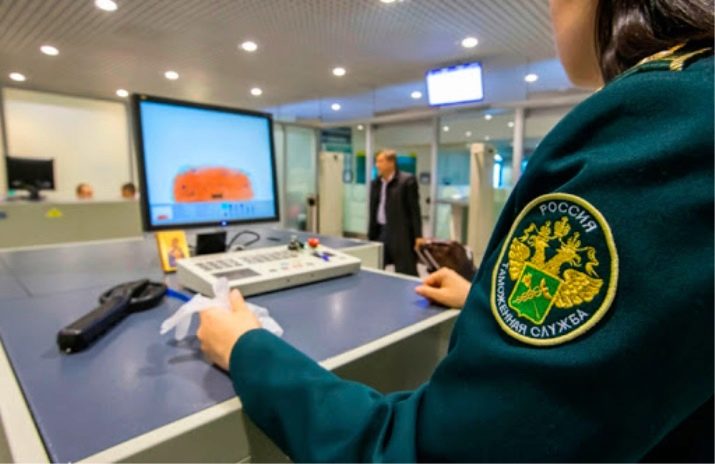
Job description
Responsibilities
The basic version of the mission of ordinary customs officers is:
- in the examination of goods transported across the border, their verification in accordance with the submitted documents;
- in assessing the degree of reliability and correctness of the documents drawn up on them;
- in calculating assigned payments, excise taxes, duties;
- in the inspection of citizens and their luggage at train stations, airports, at checkpoints;
- in the registration of permits, entering information about goods in the registers;
- in identifying the facts of illegal transportation of items, confiscation of prohibited goods, their accounting and subsequent disposal;
- in the organization and observance of the rhythmic work of the customs department.
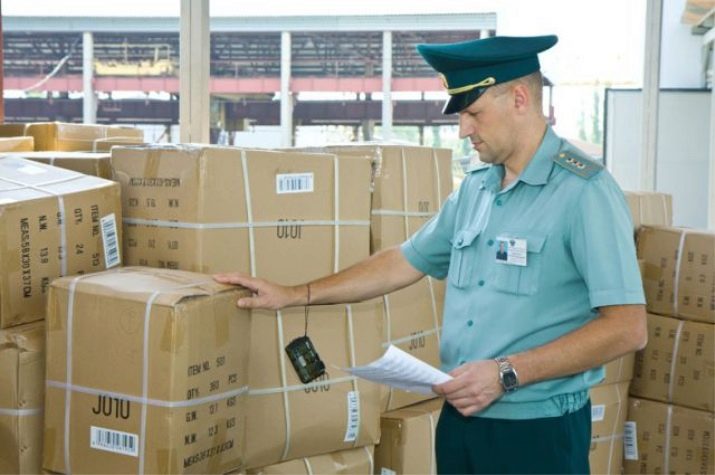
Inspectors of higher levels of the body deal with organizational aspects, depending on the specifics of the direction of activity, make the work more orderly and rhythmic.
Rights
The customs officer's rights are determined Art. 16 ФЗ №14 from 21.07.1977
The customs officer has the rights:
- to get acquainted with the documentation regulating the legal side of his activities in accordance with his position, assessment criteria for the level of his work, organizational conditions intended for the implementation of official positions;
- receive information and documentation necessary for the performance of duties;
- visit enterprises for this, regardless of their form of ownership;
- make decisions and participate in their development;
- to advance in the service, to receive a legal increase in pay, taking into account the length of service and the level of professionalism;
- get acquainted with the materials of the personal file, attach their explanatory documents to it;
- receive additional vocational education from the funds provided for the maintenance of the organization;
- demand the implementation of official investigations in order to refute information that may discredit his honest name and dignity;
- participate in staff meetings;
- to apply measures of physical influence, special equipment and weapons in cases stipulated by the Law of the Russian Federation on customs.
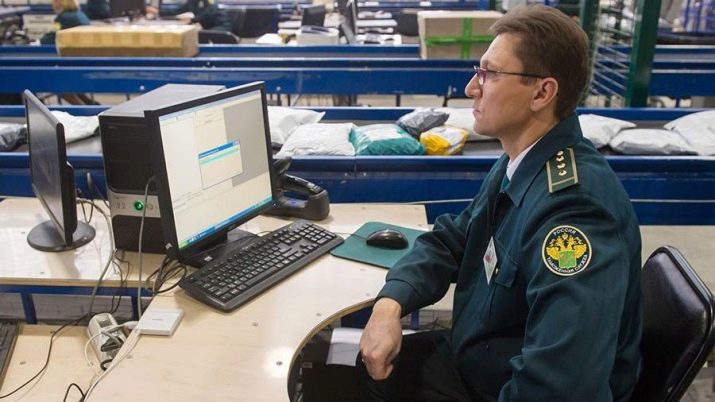
A responsibility
Violations committed in the field of customs specifics have as their consequence administrative, criminal, material and disciplinary measures in accordance with customs legislation. Employees are obliged strictly observe all the rules and obligations that are provided for by the established order. Responsibility for the quality of performance of duties by an employee is also borne by his immediate superior, who confirmed the service order.
Disciplinary action is usually taken in the event of a disciplinary offense.
Violations can be expressed both in illegal actions of employees and in their inaction during the performance of their official duties.
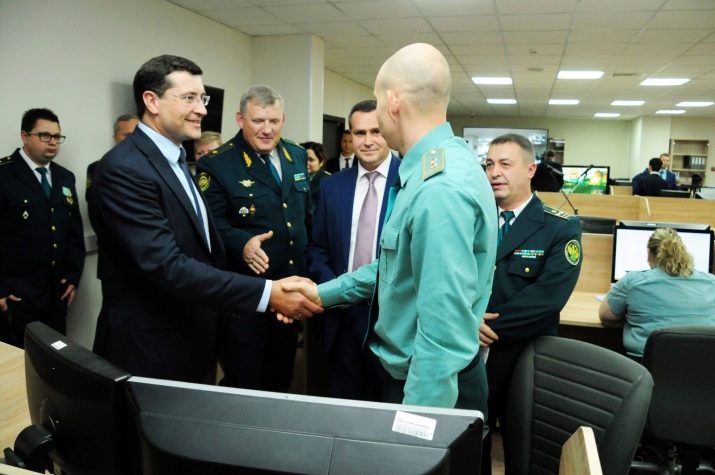
Knowledge and skills
An employee is obliged to strictly know and comply with the laws of the Russian Federation, other legislative documentation, orders, orders regulating his activities, as well as legal and legal nuances, rules for maintaining documentation, and possess a cultural, formal and business style of speech. Economic knowledge concerning the order of goods turnover is also relevant.
Possession of professional skills that ensure successful professional activity is mandatory.
Personal qualities
Customs officers must be distinguished by a high level of patriotism, be honest and principled, and also have:
- observation;
- developed intuition;
- attentiveness, accuracy, punctuality;
- stress resistance, good reaction;
- responsibility and diligence;
- diplomacy;
- the ability to analytically work with large information arrays;
- tolerance;
- communicativeness;
- the ability to resolve conflict situations;
- psychological skills (especially for identifying suspicious persons).
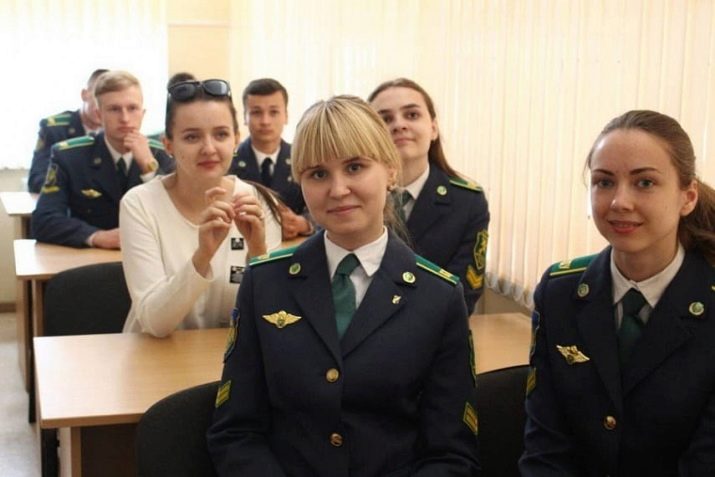
Education
It is permissible to become a customs inspector without receiving a specialized education, but it is clearly necessary for the successful solution of career issues. It is better to master the specialty productively if you enter a university after the 11th grade. The most prestigious and reputable relevant education can be obtained in the following educational institutions:
- at the Russian Customs Academy;
- at the Academy of National Economy and Public Administration;
- at the Russian University of Economics. Plekhanov;
- at the Technological University in Korolev;
- at the Moscow University. Witte;
- at the Nizhny Novgorod State University. N.I. Lobachevsky;
- at the North-West Institute of Management of the Russian Academy of National Economy and Public Administration under the President of the Russian Federation.
In the listed universities, the average passing score in one subject reaches a level above 85.5 points - it is not entirely easy to enroll in them. You will have to take exams in a highly competitive environment. Typical terms of study are 4 years (bachelor's degree) and 6 years (master's degree).These educational institutions provide advanced courses on the rules and nuances of preparing customs documentation, regulations and laws. And, importantly, a significant amount of time is devoted to classes in foreign languages, and therefore the training is intensive and difficult.
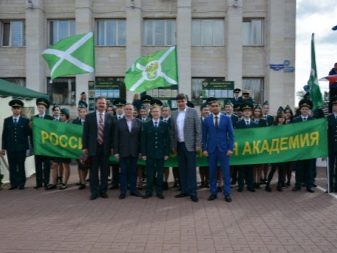
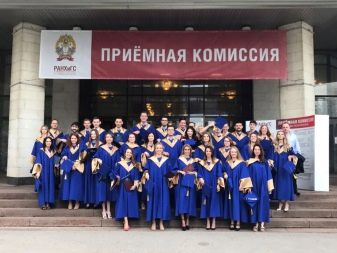
There are also colleges in our country, where you can enter after the 9th grade, master the theoretical skills of working at customs. Many of these colleges are affiliated with universities.
Ranks and epaulets
Position - the organizational structure reflected in the official documentation, legalized in the customs. It is given to employees for practical implementation, defining their functionality, rights and level of responsibility, informing them of the degree of competence within the entire system.
Ranks in customs are assigned to both newly arrived persons and employees with specific work experience. In the general list of ranks, without categorical division, the ranks are designated in the organization:
- ensigns - ordinary and senior;
- lieutenants - simple, junior and senior;
- captain;
- major;
- lieutenant colonel;
- colonel;
- generals - major, lieutenant and colonel;
- State Counselor.
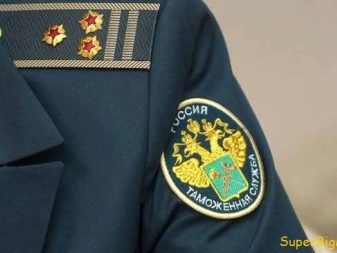
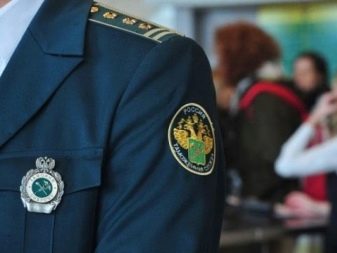
More detailed information and the specifics of their assignment are regulated by paragraph 1 of Art. 5 ФЗ №114.
The system of posts is formed on the basis of clause 2 of Art. 5 of the specified Federal Law. It is built according to the principle of hierarchy and is distributed in ascending order into 4 compositions:
- younger;
- middle management;
- senior commander;
- top management.
The job layout of the first 3 categories and their specifics are approved by the Chairman of the State Customs Committee of the country. The formation of the 4th composition is decided by the rights of the President of the Russian Federation.
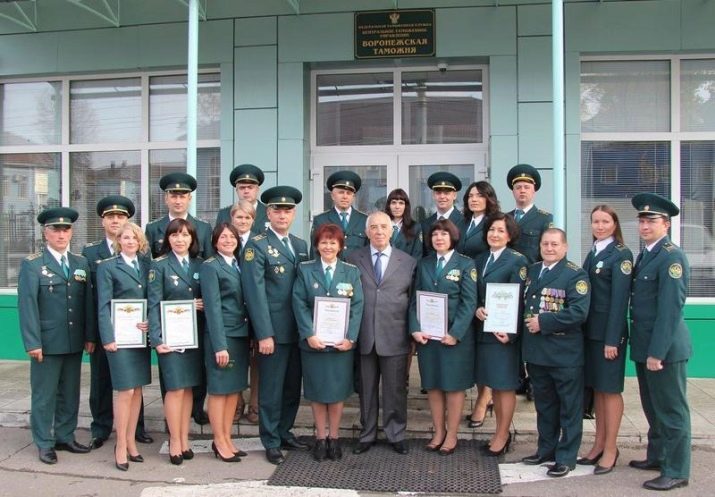
Place of work
The state customs service is a fairly structurally ramified system. After graduation, a citizen can work at customs posts (at the airport, at railway stations), at the Central Excise Customs, at the Export Control Department, in the system of customs investigations and inquiries. Many work for private export / import companies as consultants. English is encouraged, and knowledge of the literate Russian language even more so.
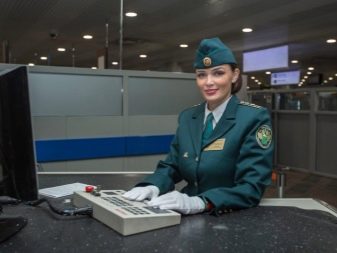

How much do they get in Russia?
It can be noted that despite the relevance of this profession for the state, ordinary specialists do not receive decent salaries corresponding to the degree of their importance and responsibility. The lowest salary - from 17,000 rubles. The greatest - depends on the length of service, a specific site and place of work.
Heads of customs departments can count on 50,000 rubles. In remote, especially northern regions, commanders receive up to 200,000 rubles. Salaries are formed from the size of the salary. The average salary in the country is 25,000 rubles.
